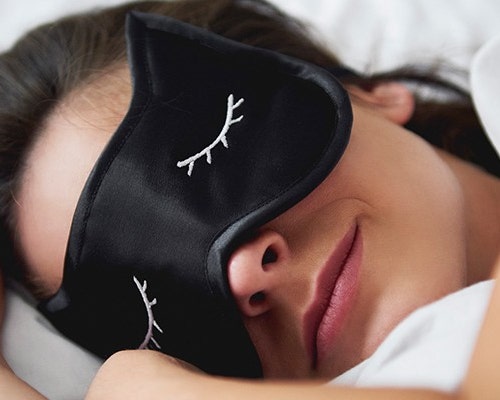How Sleep May Affect Your Weight
- 8/23/17


For many people actively trying to lose weight or maintain a healthy weight without success, the struggle can be especially frustrating when following two of the most commonly touted factors to weight management, proper diet and regular exercise. This is likely because one of the most critical aspects to weight control (as well as overall health) is lacking, which is adequate sleep.
A recent study from the Leeds Institute of Cardiovascular and Metabolic Medicine and the School of Food Science and Nutrition found that insufficient sleep may actually add more than one inch to the waistline. The study cited a distinct difference between participants, as those who received more sleep had dramatically smaller waists and a lower body mass index (BMI).
While this study demonstrates the direct effect lack of sleep has on the waistline, numerous other studies and research have drawn similar correlations between weight gain and lack of sleep. Sleep deficiency has been found to cause significant metabolic consequences, which can trigger a chain reaction in the body. Over time, chronic sleep deprivation throws off hormonal imbalance, slows metabolism and increases appetite—all of which can lead to trouble shedding pounds as well as weight gain.
According to the Mayo Clinic, when sleep is insufficient, the hormones regulating hunger are disrupted, namely ghrelin and leptin, thus stimulating the appetite and lowering satiety. The American Journal of Clinical Nutrition tested sleep-deprived participants, and found that they consumed an average of 300 more calories per day. This helps shed light on why cravings for sweet, salty and unhealthy foods intensify following a poor night of sleep, and why healthy diet intentions can flop or yo-yo dieting is so common.
Further, research from the International Journal of Endocrinology found that just a week of sleep deprivation can alter metabolism, as sleep is intricately connected to various hormonal and metabolic processes in the body required to maintain metabolic homeostasis.
However, a large percentage of people in the nation are severely sleep deprived, with not just a night or week of disruption afflicting their hormone levels. According to the American Sleep Association, up to 70 million US adults have some form of a sleep disorder—which may help explain the nation’s high rates of obesity.
Long-term sleep problems have been linked to many health conditions as a result of hormonal disruptions, including diabetes. As sleep is also very important for proper insulin sensitivity and glucose control, if insulin becomes unbalanced, the body stops utilizing it as effectively. The body then requires more and more insulin to control blood sugar. In turn, this can lead to weight gain—as well as an increased risk of obesity and diabetes, among other health concerns.
While it may not be easy to develop healthier sleep patterns, getting more sleep is vital for improving overall health as well as achieving healthy weight management and a smaller waistline. Firstly, it is important to identify any underlying causes of sleep disorders, to directly treat the problem and not just mask the symptoms. Then, be sure to consider taking a holistic approach to better sleep, for lasting and more effective results.
Avoiding both mental and physical over-stimulation in the evening is a great way to start, which includes nixing activities like mentally-taxing work as well as cutting out electronic devices at least an hour before bed. Instead, engage in relaxing activities such as meditation, reading and a warm bath. Be mindful of eating habits, such as avoiding a heavy meal close to bedtime, and cutting out caffeine early on in the day. Plus you can look into natural ways to help you relax and sleep. Try to establish a regular bedtime and wake time, including on weekends. For many who have dealt with chronic trouble sleeping, it can be difficult to build a positive association with the bedroom. Make it as peaceful as possible by creating a serene, cool, dark space, which is ideal for helping induce slumber. Try adding a sound machine to block street noise or use a sleep mask to block light.





